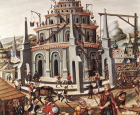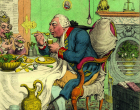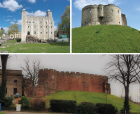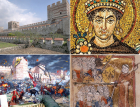Sense of period
Developing a sense of period is about going beyond knowledge of dates and period labels to help students appreciate the kind of world in which the people that they are studying actually lived. Such understanding is obviously supported by knowledge of key events, but it also depends on being able to visualise the period – recognising the kind of conditions in which people lived – and on an appreciation of the routine ideas and assumptions that shaped their thinking. The resources in this section offer a range of strategies to help teachers plan for the development of this kind of awareness, focusing particularly on the different kinds of sources that can be used to make the ideas and attitudes of people in the past accessible and meaningful in their particular context.
-

Making History Accessible
Multipage ArticleClick to view -

Triumphs Show 193: Year 8 imagine the First World War trenches
ArticleClick to view -

Maximising the power of storytelling in the history classroom
ArticleClick to view -

Film Series: Active Learning & History
Multipage ArticleClick to view -

Why history teachers should not be afraid to venture into the long eighteenth century
ArticleClick to view -

Using the present to construct a meaningful picture of the medieval past
ArticleClick to view -

Dialogue, engagement and generative interaction in the history classroom
ArticleClick to view -

Historical learning using concept cartoons
ArticleClick to view -

It’s just reading, right? Exploring how Year 12 students approach sources
ArticleClick to view -

Cunning Plan 186: teaching Samurai Japan in Key Stage 3
ArticleClick to view -

Creating a progression model for teaching historical perspectives in Key Stage 3
ArticleClick to view -

Illuminating the possibilities of the past
ArticleClick to view -

Planning a more diverse and coherent Year 7 curriculum
ArticleClick to view -

Using the concept of place to help Year 9 students to visualise the complexities of the Holocaust
ArticleClick to view -

What can rituals reveal about power in the medieval world? Teaching Year 7 pupils to apply interdisciplinary approaches
ArticleClick to view -

Deepening Year 9’s knowledge for better causation arguments
ArticleClick to view -

‘One big cake’: substantive knowledge of the mid-Tudor crisis in Year 7 students’ writing
ArticleClick to view -

Using oral history to enhance a local history partnership
ArticleClick to view -

What Have Historians Been Arguing About... medieval science and medicine?
ArticleClick to view -

Using individuals’ stories to help GCSE students to explain change and causation
ArticleClick to view

